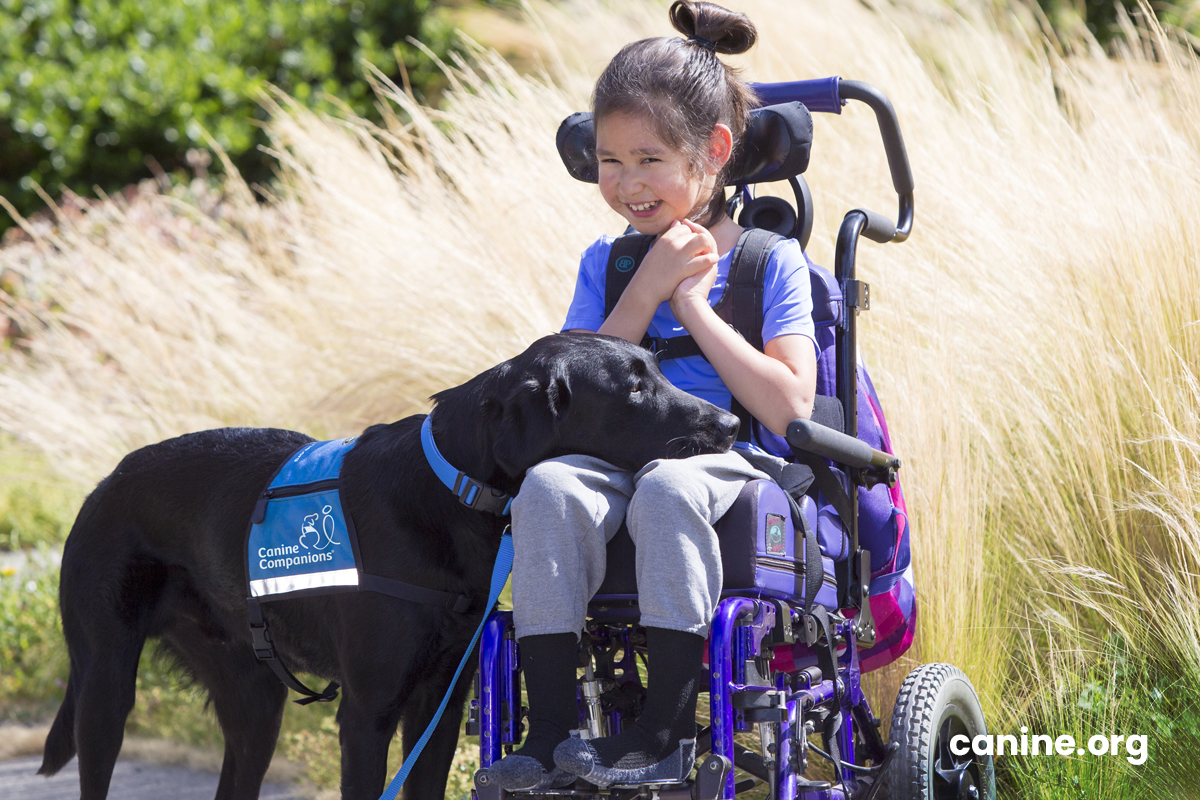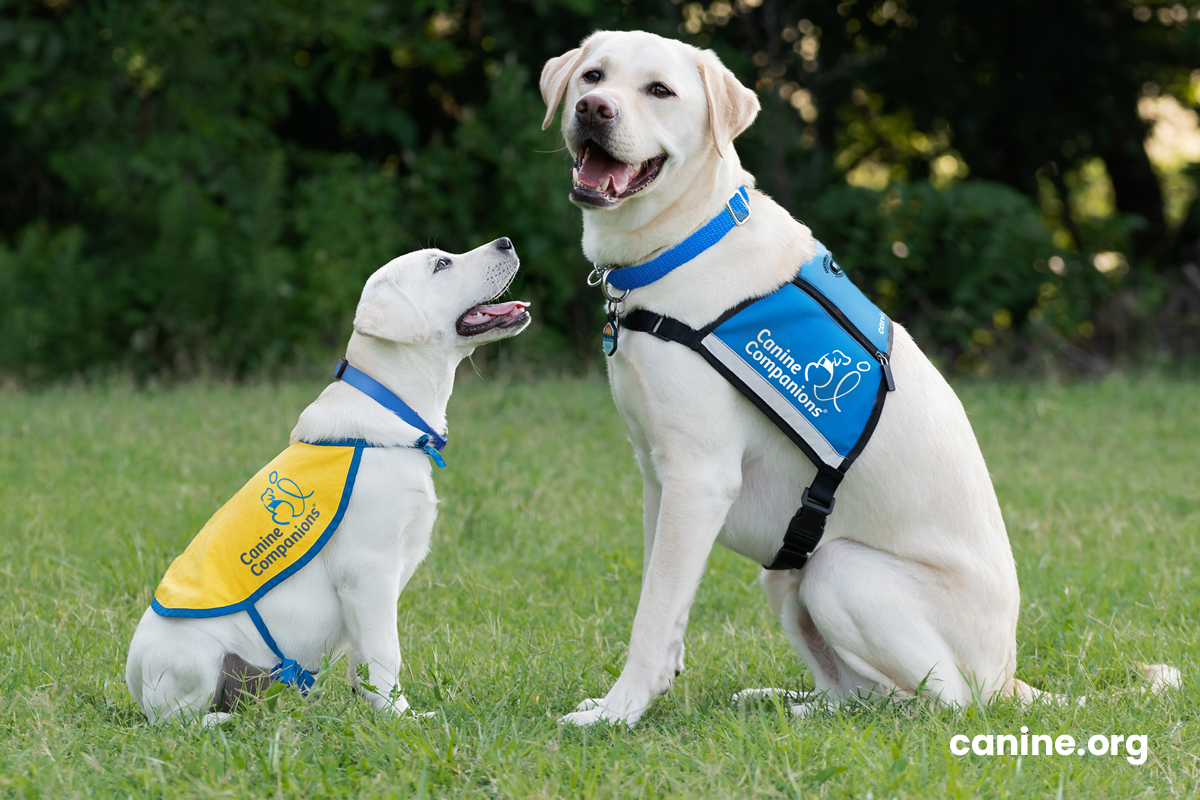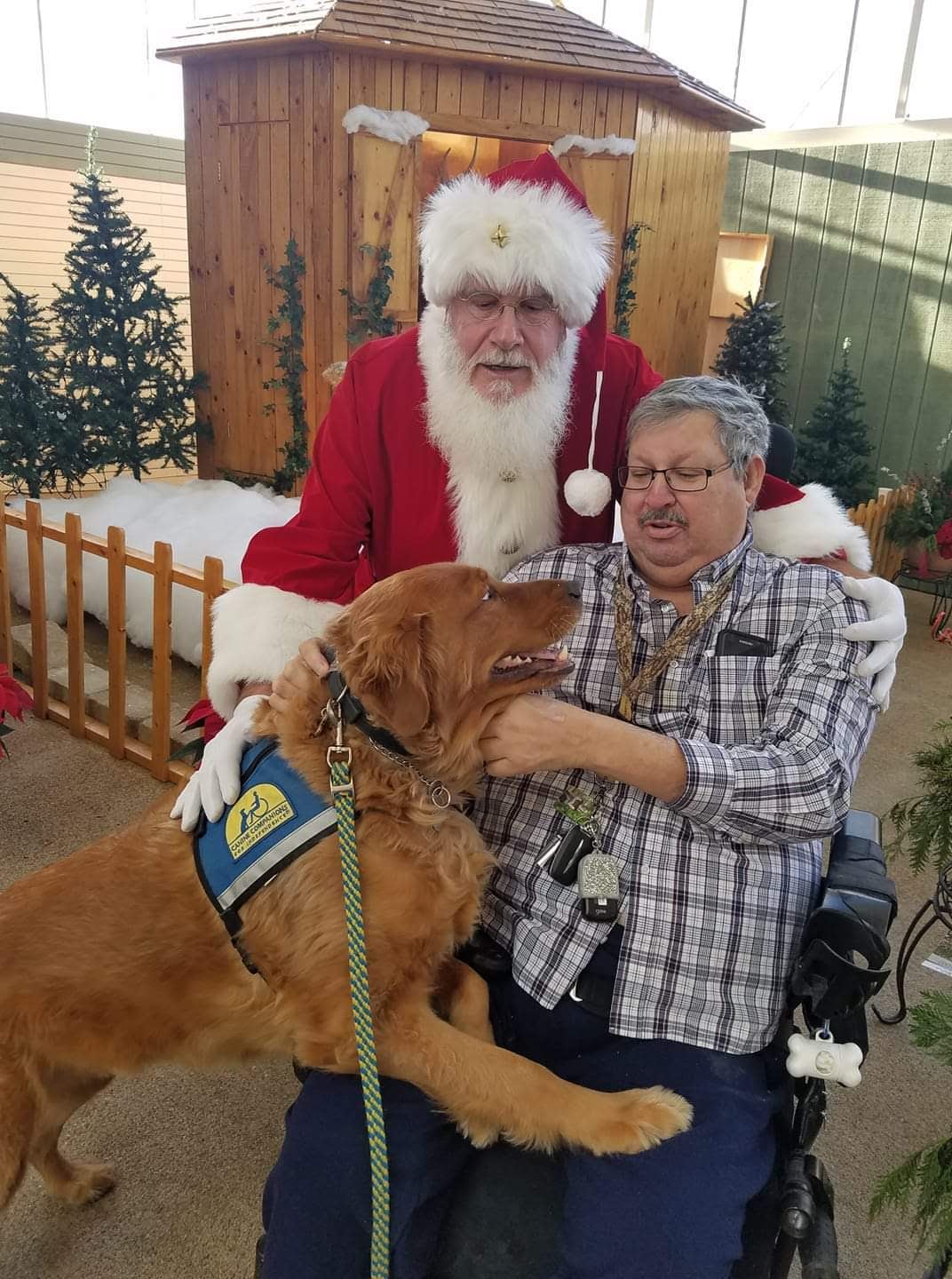 What is a service dog?
What is a service dog?
Service dogs hold an important place in our society as well as people's hearts. They provide a way for those with disabilities to have increased independence. According to the Americans with Act (ADA), service dogs are those formally trained to do work or to perform tasks for a person with a disability. The work a service dog has been trained to provide must be directly related to the person's disability.
What types of service dogs are there?
Service dogs receive specialized training at specific facilities for the intended work they are to do. These include:
- Guide Dogs work with people who are blind or visually impaired. Unlike other service dogs, guide dogs are trained in what's called "selective disobedience". They obey commands BUT they are trained to make their own choices based on their assessment of a situation. These choices prevent harm to their handler. For example, if their handler commands them to cross the street but cars are coming, they will stay put to keep their handler safe.
- Mobility Service Dogs work with people whose disability limits their daily movement. These dogs are trained to do tasks such as retrieve items, open and close doors, push buttons, among others.
- Psychiatric Service Dogs work with people with mental disabilities like depression, PTSD, and anxiety. They provide assistance by responding when the handler exhibits signs that additional care is needed.
- Hearing Dogs work with people with hearing loss by alerting to specific sounds.
- Medical Alert Service Dogs alert their handler to oncoming conditions. Then they attend to them during a medical event like a heart attack, POTS, stroke, diabetes, or epilepsy. These dogs may alert the owner or be trained to alert another person. In response, some are even trained to call 911 using a K-9 alert phone if they are home alone.
- Seizure Alert Service Dogs are specifically trained to alert their handler or a caretaker when a seizure is oncoming or occurring. Not only are they trained to find help for their person, they quickly return to stabilize the handler and limit potential harm experienced during the seizure.
- Allergy Detection Dogs work with people with severe allergies by sniffing out the source of the allergen like peanut butter, eggs, or gluten. They can alert the handler if it is present in the food they want to consume.
- Autism Service Dogs are trained to support people on the autism spectrum. Frequently paired with children, they help to keep them from doing harmful behaviors. Once specific behavior revolves around keeping them from running away. The dog is trained to tract that child if they do run away.
Where Can Service Dogs Go?
People with trained service dogs are permitted to go to any facility where the public is allowed to go with specific exclusions like an operating room. The ADA limits questioning of service dogs because that would impinge on the handler's personal medical information. The only questions that can be asked are: "Is the dog a service dog?" and "What tasks is the dog trained to do?"
 How to Interact with Service Dogs:
How to Interact with Service Dogs:
When you see a service dog out in public, remember they are working. They are not a regular pet that you can approach. Distracting the dog could lead to harm of the handler as the dog many not complete a medically necessary task. Show respect for not only the handler of the service dog but the service dog as well. Purposefully trying to distract them by calling their name, touching them, making loud noises, or feeding them is not okay. That individual's service dog is helping to keep their handler safe and needs to keep focus while out and about.
Where Do You Get Service Dogs From?
There are many organizations that complete training for different types of service dogs. Depending on the desired support, specific facilities supply dogs and initiate training. Over time, the dog is paired with an appropriate handler in need of assistance and then completes the program. For Mobility Service Dogs, one national non-profit organization, with a facility here in Ohio, is Canine Companions.
How Can You Get Involved To Support These Organizations?
- Volunteer your time: There are chapters of volunteer groups across the country! From helping to organize and participate in fundraising events, becoming a breeder caretaker, or just promoting the cause on social media; every little but counts.
- Become a puppy raiser: Puppy raisers are a special set of volunteers. These individuals create the building blocks to socialize and expose potential service dog puppies to the outside world. They make sure the puppy gets proper veterinary care and is raised in a nurturing environment. This unselfishness allows these puppies to move on and care for those with disabilities.
- Donate resources: Many organizations have the ability to donate directly on their website.
What Are Some of the Service Dog Organizations?
- Canine Companions
- Guide Dog Foundation
- Guide Dogs for the Blind
- Guide Dogs of America / Tender Loving Canines
- Assistance Dogs International
- Freedom Paws Assistance Dogs
- Buckeye Service Dogs
- Little Angel Service Dogs
- Doggie Does Good
- Neads World Class Service Dogs
 Meet Juju: A Local Service Dog In Action
Meet Juju: A Local Service Dog In Action
Juju and his handler have been together for 8 years. He is a mobility service dog trained through Canine Companions. Juju is trained to do more than 20 tasks including picking up objects, turning on and off lights, and opening and closing doors. Juju has made an immense impact in the lives of his family. Always staying by his side, Juju is able to provide a sense of independence for his owner who is a paralyzed veteran.
